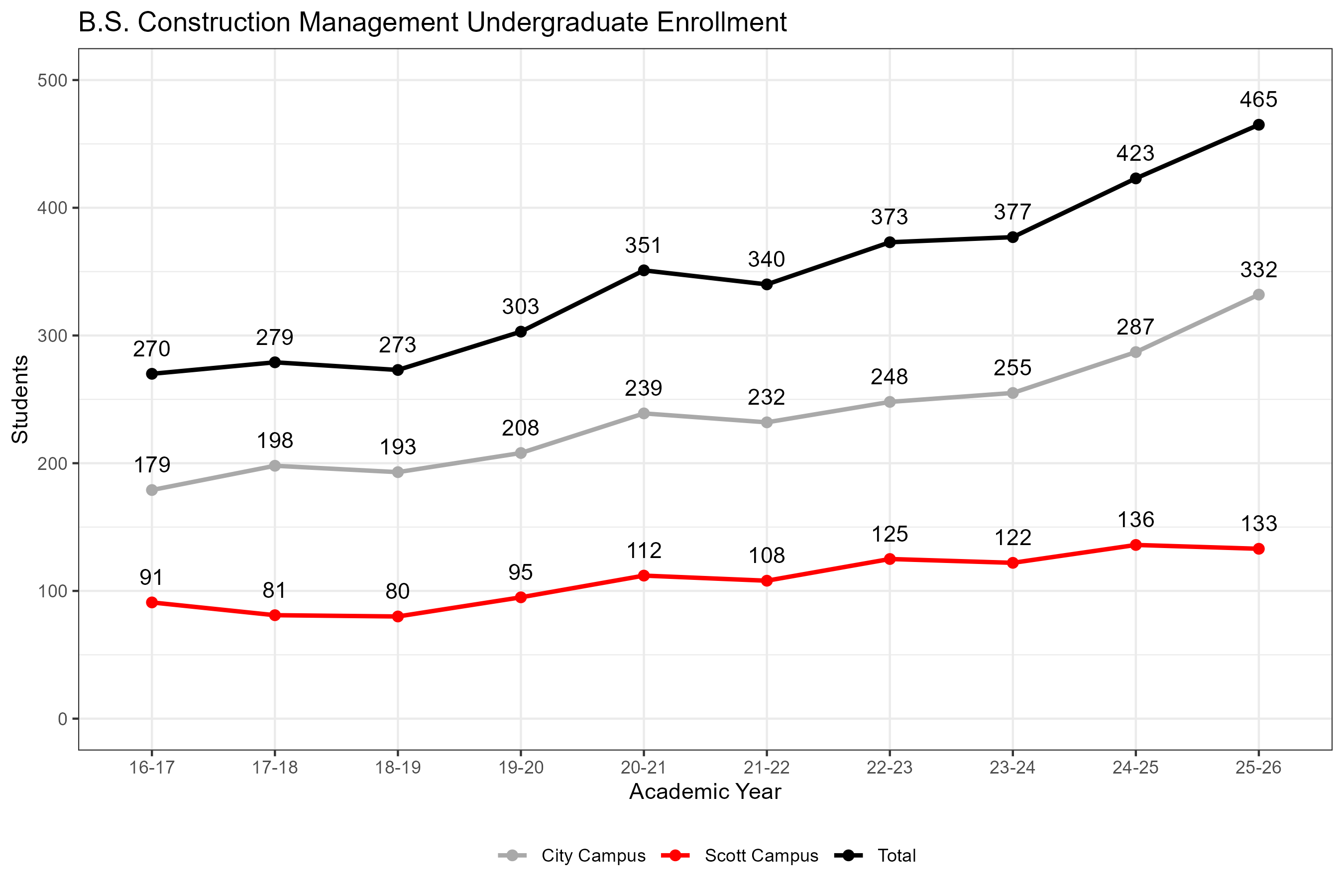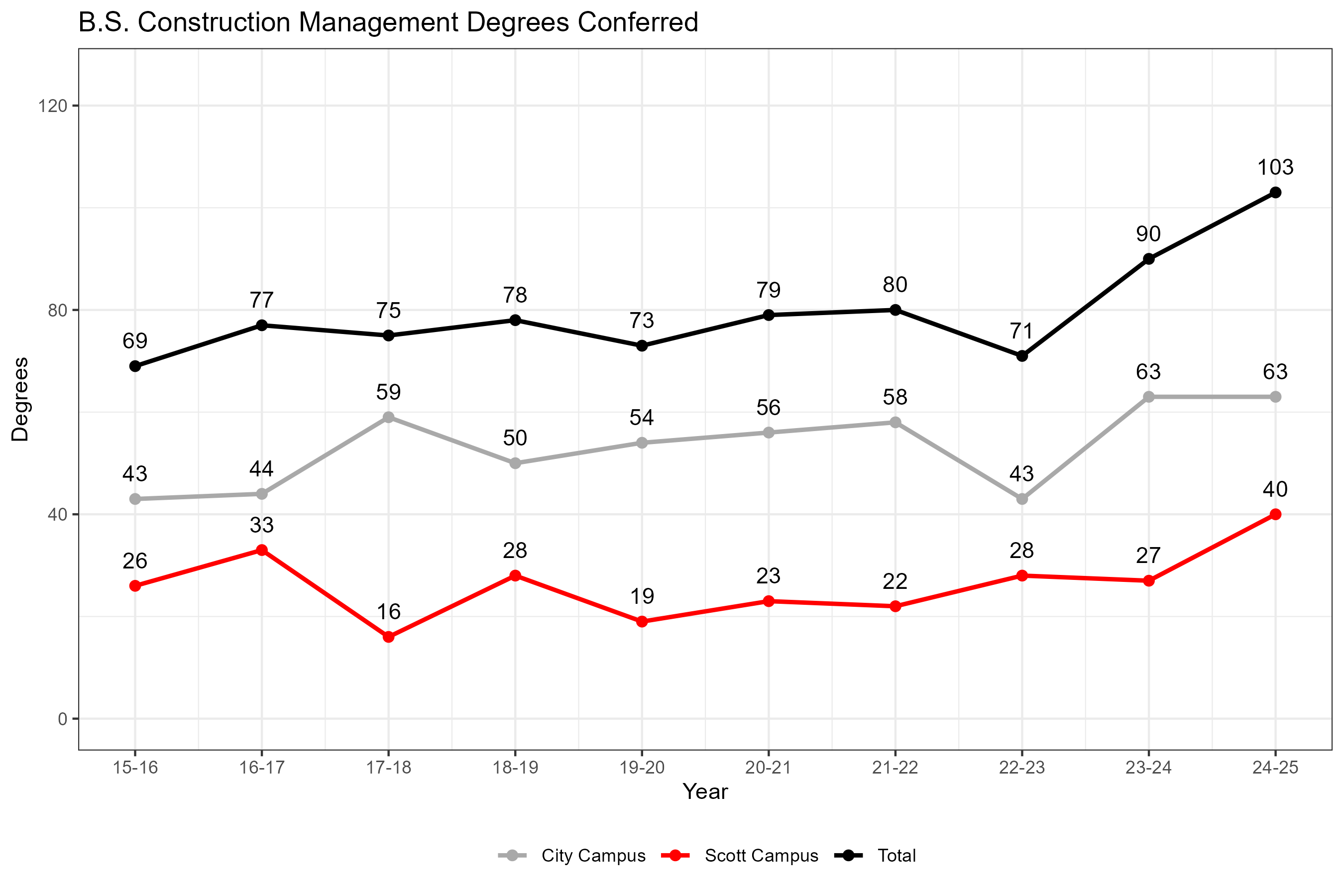The Construction Management (BSCM) program is accredited by the Applied and Natural Science Accreditation Commission of ABET, http://www.abet.org, under the commission's General Criteria and Program Criteria for Construction Management and Similarly Named Programs.
ABET Accreditation: Construction Management
Mission
The mission of the Durham School of Architectural Engineering and Construction is to educate the engineer and constructor of the future. A professional that is not only technically competent, but who also focuses on innovation, possesses an entrepreneurial spirit, enjoys global and social awareness, and is a leader in the community.
Program Educational Objectives (PEOs)
The following is a list of the Construction Management Program Educational Objectives (PEO) that graduates are expected to attain within a few years of graduation:
- Develop construction project objectives and plans including delineation of scope, budget, and schedule;
- Select project participants and set performance requirements;
- Maximize resource efficiency through judicious procurement and management of labor, materials and equipment;
- Implement and complete construction activities through coordination and control of scheduling, contracting, estimating and cost control;
- Develop effective communication protocols and mechanisms for resolving conflicts associated with the construction process; and
- Ensure quality and safety through design, measurement, analysis, and control
Student Outcomes
Graduates of the Construction Management program within the Durham School of Architectural Engineering and Construction, University of Nebraska-Lincoln, will have the knowledge, as well as the technical, administrative and communication skills, necessary to succeed in the construction industry. Students will demonstrate the knowledge and skills to deliver construction projects with respect to scope, schedule, budget, quality, safety, and the environment. All graduates will possess the following skills and knowledge:
- An ability to identify, formulate, and solve broadly defined technical or scientific problems by applying knowledge of mathematics and science and/or technical topics to areas relevant to the discipline.
- An ability to formulate or design a system, process, procedure or program to meet desired needs.
- An ability to develop and conduct experiments or test hypotheses, analyze and interpret data and use scientific judgment to draw conclusions.
- An ability to communicate effectively with a range of audiences.
- An ability to understand ethical and professional responsibilities and the impact of technical and/or scientific solutions in global, economic, environmental, and societal contexts.
- An ability to function effectively on teams that establish goals, plan tasks, meet deadlines, and analyze risk and uncertainty.
Enrollment Data
The table below is a summary subset of 10-year enrollment data for the Bachelor of Science in Construction Management, College of Engineering, University of Nebraska-Lincoln.

Graduation Data
The table below is a summary subset of 10-year graduation data for the Bachelor of Science in Construction Management, College of Engineering, University of Nebraska-Lincoln.

Click below to view all undergraduate enrollment and graduation data for the College of Engineering.
Undergraduate Enrollment and Graduation Data